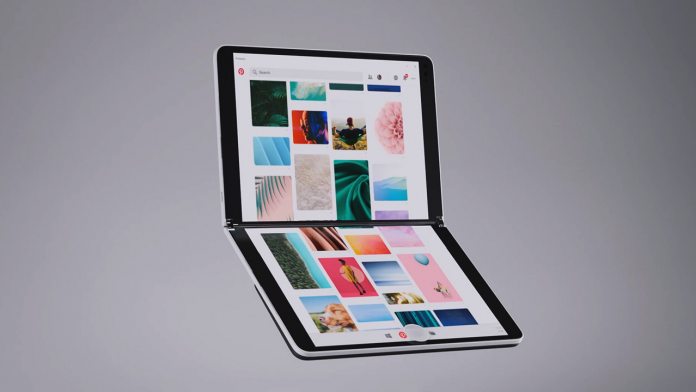Microsoft is embarking on a bold new world of hardware technology with its Surface Duo and Surface Neo devices. Both dual-screened folding products are aimed at being cutting edge, so Microsoft wanted to give its engineers the best tools to create something innovative.
According to a new video found by WalkingCat, the Surface Neo and Surface Duo have technology aimed at helping the devices be more useful. For example, electromyography monitors the electrical activity of the users’ arm. This is done to assess if the Surface Neo does not put too much strain on the forearm.
The second technology is EEG brain scans. In the video, a Microsoft engineers says the dual-screen nature of the Surface Neo and Surface Duo allows your brain to take in more information. While Microsoft does not explain how this tool will integrate with the experience, it has us interested.
Interestingly, Microsoft saying the brain takes in more information could mean the dual-screened Surface devices overload users.
https://twitter.com/h0x0d/status/1253938567656558592
However, the real interpretation is probably closer to providing more separate information across a wider two-screen panel and not overloading the user through multi-tasking on a single screen. A good example would be how many professionals who multi-task regularly will have a dual-monitor setup.
Surface Neo Future
We will be able to see how these technologies integrate into the Surface Duo when the Android smartphone launches later this year. However, we won’t see the Surface Neo at that time. Last month, Microsoft confirmed it has postponed the launch of the tablet-come-laptop.
It seems this decision was made to allow Microsoft to focus on Windows 10X. The new Windows SKU was set to debut alongside the Neo. Microsoft will instead send out Windows 10X on single screen laptops made by OEMs.
In other words, the company is putting emphasis on the platform and not the hardware. That’s bad news for those of us who were waiting for the Surface Neo to arrive. However, Windows 10X is still compatible with dual screen hardware. However, OEMs won’t be permitted by Microsoft to release dual-screen laptops in 2020.




